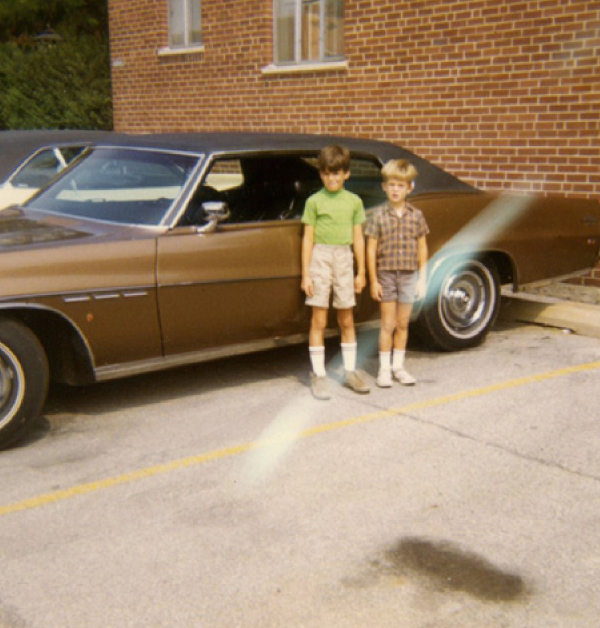Whatever, NYC. Here’s a letter to Chicago we can get behind
By Robin Amer

Whatever, NYC. Here’s a letter to Chicago we can get behind
By Robin AmerRachel Shteir got you down? If you haven’t already, check out Neil Steinberg’s response (and his cabbie’s) to the drubbing he and the city of Chicago received in the review Shteir did for the New York Times Sunday Book Review last week. Or, you might want to consider this self-described “love letter” to Chicago from another writer, Michael Hainey.

“Even as a kid I felt these roots here,” Hainey said in a recent interview with Bill Savage, a professor of literature, history and culture at Northwestern. (Savage, by the way, also had words for Shteir.) In After Visiting Friends, Hainey refers to Chicago as “my old country,” a place that he “would always be pining for.”
Of course, loving Chicago and pining for it doesn’t mean you can’t also see its faults. His descriptions are as intimate as they’re grittily realistic.
Hainey’s had his own experience with the city’s sometimes disturbing underbelly. His father, Bob, was a rising star reporter at the Sun-Times in the ‘60s. But he turned up dead one night when Michael was just six, leaving a stunned and fractured family behind. Obituaries said the elder Hainey, just 35 then, died “after visiting friends,” but it was never clear to Michael what really happened. So he spent 10 years investigating his father’s death, and in the process, came to a new understanding of the city he loved.
Hainey’s been tight-lipped about what mysteries he solved in the process of his reporting – you’ll have to buy the book to find out what really happened to his dad. But in the audio above, you can hear him explain to Savage how – in the tradition of great Chicago memoirists before him – the city became a character in his book.
Dynamic Range showcases hidden gems unearthed from Chicago Amplified’s vast archive of public events and appears on weekends. Michael Hainey and Bill Savage spoke at an event presented by Chicago Public Library in February of 2013. Click here to hear the event in its entirety.
Robin Amer is a producer on WBEZ’s digital team. Follow her on Twitter @rsamer.